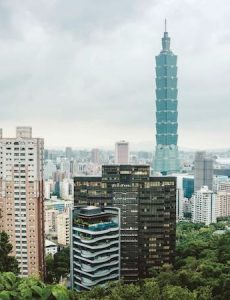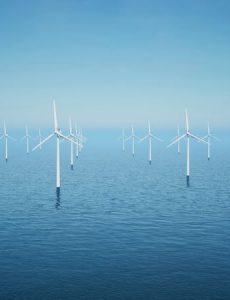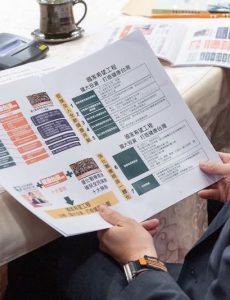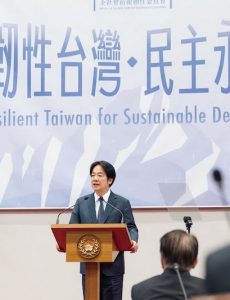
Macroeconomic Brief – April 2025
Taiwan’s economy showed steady growth in March 2025, driven by strong semiconductor exports and investment momentum, but rising costs and looming U.S. tariffs have dampened consumer confidence and export optimism.

Taiwan’s economy showed steady growth in March 2025, driven by strong semiconductor exports and investment momentum, but rising costs and looming U.S. tariffs have dampened consumer confidence and export optimism.

Regulatory uncertainty continues to cloud Taiwan’s offshore wind ambitions, even as the government pledges to ease local content rules. While the sector has made impressive gains, investors remain cautious amid lingering red tape, infrastructure bottlenecks, and a shift to a high-risk, market-driven model.

Once a plastic-parts maker, Foxconn is reinventing itself for the AI age—transforming from a contract manufacturer into a global platform player powering smart factories, cities, and healthcare. With bold bets on AI servers, digital twins, and humanoid robots, the company aims to shape the next frontier of intelligent infrastructure.

Despite the ongoing war, AmCham Ukraine and its members have demonstrated extraordinary resilience—maintaining operations, supporting staff, and adapting through technology and unity. President Andy Hunder’s reflections highlight how leadership, trust, and innovation are helping Ukraine not only endure but prepare for its future recovery and growth.

Taiwan’s Healthy Taiwan Initiative, championed by President Lai Ching-te, marks a bold shift toward prevention, digital innovation, and holistic care—aiming to add healthy years to life and tackle chronic diseases, mental health, and cancer head-on. With expert-driven reforms and a public-private push, the initiative is laying the groundwork for a stronger, more resilient healthcare system.

Chris Cottorone, president of TriOrient Investments and co-chair of AmCham Taiwan’s Private Equity Committee, shares insights from his decades-long career in Asia, offering a seasoned perspective on Taiwan’s evolving investment landscape. In this interview, he discusses private equity trends, market dynamics, and the growing role of foreign capital.

Taiwan’s economy continues to expand in early 2025, driven by strong semiconductor exports and AI demand, but concerns over potential U.S. tariffs and a cooling real estate market have tempered optimism. With GDP growth projections slightly revised downward and trade policies in flux, policymakers and businesses are closely watching global demand and supply chain shifts.

Taiwan is strengthening its resilience through President Lai Ching-te’s Whole-of-Society Defense Resilience (WOSR) initiative, which integrates civil defense, economic security, and counter-disinformation efforts to bolster stability amid growing external threats.

Taiwan has bolstered its defense ties with the U.S. through record arms deals—including a $2 billion sale and an additional $385 million agreement—but a dramatic shift from a fixed 40% offset requirement to a case-by-case system now heightens financial risks and uncertainty for defense contractors.

Taiwan’s economy showed signs of recovery in late 2024, with GDP growth rebounding to 1.8% YoY, driven by steady private consumption and expansion into green technology. However, challenges persist in 2025, as consumer confidence dips amid global uncertainties and new U.S. trade policies, prompting Taiwan’s government to implement measures supporting affected businesses.